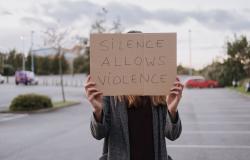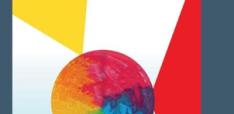The Moral Dilemma Facing Humanitarians Today

Liana Ghukasyan explores the moral dilemma facing today’s humanitarians: when to speak out in the face of injustice, and when silence might preserve access and safety. Grounded in real-world examples, it challenges the humanitarian sector to reflect on whether neutrality has become a shield of inaction. In a world of livestreamed suffering, it asks: what does it truly mean to stand with those in need?
“In the end, we will remember not the words of our enemies, but the silence of our friends.” - Martin Luther King Jr.
These words ring painfully true in today’s humanitarian landscape. In a world where suffering is livestreamed, where injustice is documented in real time, and where victims cry out not only for aid but for acknowledgment, the silence of humanitarians is becoming impossible to ignore.
Over the past months, I have engaged in deep conversations and reflections with colleagues from my own organization and across the wider humanitarian community. We spoke candidly about the state of our sector, the expectations of the people we serve, and the difficult moral terrain we now navigate. What follows is not just my perspective, but a reflection of those collective voices - a summary of what I have heard, felt, and grappled with.
For decades, we have anchored our work in the principles of humanity, impartiality, neutrality, and independence. But today, those very principles are being put to the test.
In Afghanistan, women and girls have been stripped of their rights, barred from education, work, and public life. In Gaza, entire families are wiped out while medical facilities are targeted. In Ukraine, humanitarian workers are caught in the crossfire of geopolitical confrontation. On Europe’s borders, migrants are left to die in the cold or pushed back violently.In Sudan, a silent war rages largely outside international headlines. In the Sahel, armed violence, hunger, and displacement spiral while global attention fades. And across the Global South, communities living on the frontlines of climate change ask why the world’s humanitarian institutions are not louder about the environmental injustices that threaten their very existence.
In each of these crises, and many more, humanitarians are present. We provide food, shelter, water, protection. We uphold dignity where it is under siege. But increasingly, we are being asked not just to serve, but to speak. To condemn. To bear witness. To call injustice by its name.
But often we hesitate. Some fear losing access. Others fear losing neutrality. Some feel constrained by mandates, funding agreements, or organizational risk assessments. But those who suffer do not experience our silence as neutrality - they experience it as abandonment.
Yet history shows us that speaking up can make a difference.
In the 1990s, when genocidal violence erupted in Rwanda, few spoke out. But in its aftermath, the failure of humanitarian actors to raise their voices became a moral reckoning for the entire sector. That failure changed how we view the responsibility to protect.
In Syria, Médecins Sans Frontières (MSF) made the difficult decision to publicly denounce the targeting of hospitals and health workers, despite operating in extreme danger. Their advocacy kept the issue on the global agenda and helped secure international recognition of the deliberate destruction of health infrastructure as a war crime.
In Myanmar, humanitarian voices, including those from the UN and INGOs, were among the first to raise alarm about the atrocities against the Rohingya. While not enough to stop the violence, those testimonies laid the groundwork for international investigations and accountability processes that continue today.
And in Yemen, humanitarian leaders who spoke out about the blockade of aid, calling it a deliberate act of war, brought international pressure to ease restrictions and allow critical food and medical supplies into the country.
These examples remind us: silence is not the only path to access. Sometimes, the refusal to be silent is what creates the pressure needed to save lives. And sometimes, speaking out, though costly, is the only morally defensible act.
This is not a simple dilemma. There are no one-size-fits-all answers. And perhaps that is part of the point: maybe there is no single way to be a humanitarian.
Humanitarian action is not a rigid formula. It must be contextual, adaptive, and attuned to the realities we face. What might be effective and ethical in one setting, may be reckless or dangerous in another. In some contexts, discretion preserves lives. In others, silence deepens harm. Speaking out in Kabul may mean losing the last access point for women’s health services. Staying quiet in Rafah may mean losing the trust of the very people whose lives we claim to value.
As political theorist Michael Walzer once wrote in his essay ‘The Problem of Dirty Hands’, there are moments when doing the right thing involves doing something morally troubling. Humanitarians, just like political leaders, are not exempt from this reality. We too must sometimes choose between competing harms. The key is to recognize the moral cost, not to pretend it doesn’t exist.
This is not about abandoning principles. It is about applying them with wisdom. We must find space for multiple approaches to humanitarianism. Some actors may choose to speak out loudly and consistently. Others may work quietly behind the scenes to preserve access. Both may be right, depending on the context.
The danger lies not in diversity of approach, but in a culture of avoidance: when we refuse to even ask the hard questions. Too often, “contextualization” becomes an excuse for disengagement. As anthropologist Didier Fassin argues in his book ‘Humanitarian Reason’, humanitarianism is never truly apolitical. According to him, our choices of what we respond to, what we say, and what we remain silent about, are moral and political acts in themselves. If we are to retain credibility, not just as service providers, but as a moral force in the world, we must not only do the right thing; we must be seen to stand with those who suffer. We are not activists. But we are not bystanders, either. We are humanitarians. That should mean something.
When history looks back at this time, let it say that we served with integrity, and spoke with conscience, even when our words were imperfect, even when it was hard to know what to say. Because in the end, people may not remember every aid delivery or report. But they will remember who stood with them and who stayed silent.
Liana Ghukasyan is Special Advisor to IFRC President, former Deputy Permanent Observer to the UN in New York.
Photo by Anete Lusina

